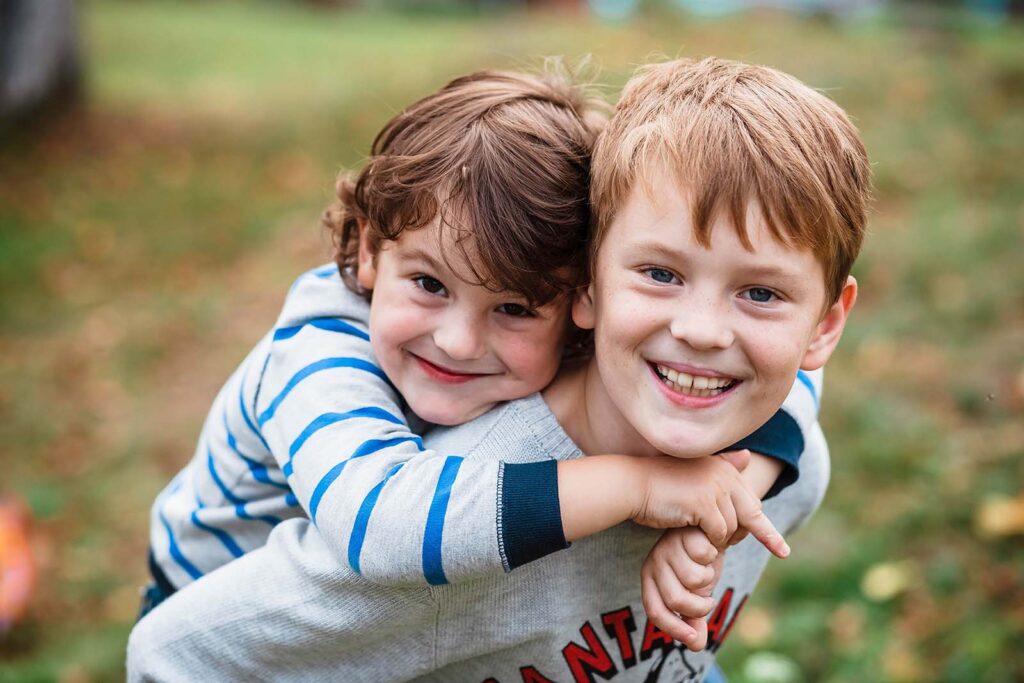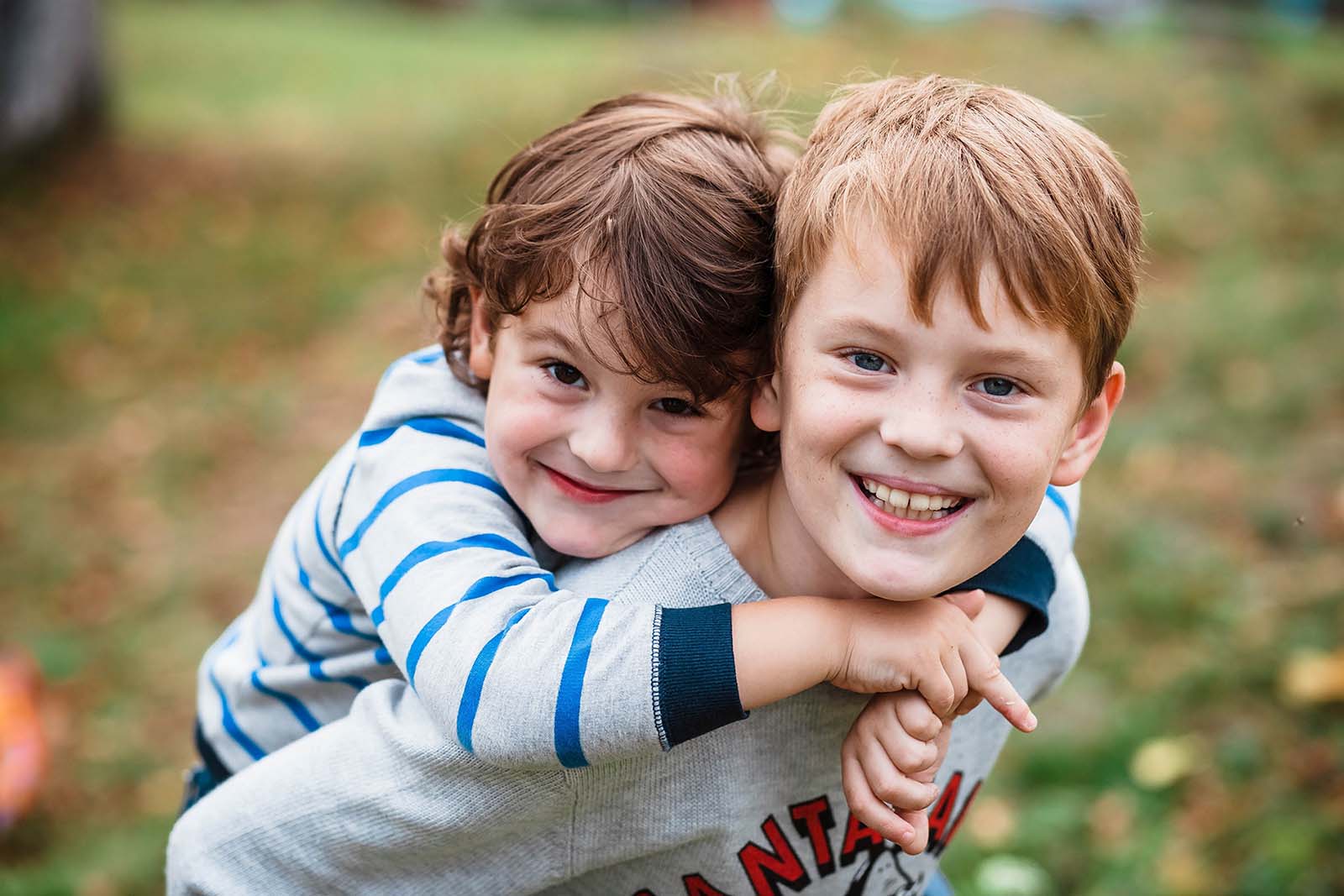
Understanding Sibling Relationships: Dynamics, Impact, and Fostering Positive Bonds
Sibling relationships are among the longest-lasting and most influential relationships individuals experience throughout their lives. Unlike friendships, which are chosen, or parent-child relationships, which are hierarchical, sibling bonds offer a unique blend of companionship, competition, and shared history. Understanding the complexities of sibling relationships is crucial for parents, educators, and individuals seeking to improve these important connections. This article delves into the dynamics of sibling relationships, explores their impact on development, and provides practical strategies for fostering positive bonds.
The Unique Dynamics of Sibling Relationships
Sibling relationships are characterized by a complex interplay of factors. These include shared genes, family environment, parental treatment, and individual personalities. This combination creates a dynamic where siblings can be both allies and rivals, confidants and competitors. The nature of these interactions significantly shapes their individual development and overall family harmony.
Competition and Conflict
Competition is a natural part of sibling relationships. Children often compete for parental attention, resources, and recognition. This competition can manifest in various ways, from vying for the best grades to engaging in physical altercations. While some level of competition is normal, excessive or unresolved conflict can lead to resentment and strained relationships. Parents play a vital role in managing sibling rivalry by promoting fairness and discouraging comparisons.
Cooperation and Support
Despite the potential for conflict, sibling relationships also offer invaluable opportunities for cooperation and support. Siblings often learn to share, negotiate, and compromise through their interactions. They can provide emotional support during challenging times, offer different perspectives, and serve as sounding boards for each other’s ideas. The shared experiences and memories forged during childhood create a unique bond that can last a lifetime.
Influence of Birth Order
Birth order is often cited as a factor influencing sibling relationships. Firstborn children are often characterized as responsible and achievement-oriented, while middle children may be seen as peacemakers and negotiators. Lastborn children are sometimes described as charming and attention-seeking. However, it’s important to note that birth order is not a deterministic factor, and individual personalities and family dynamics play a more significant role in shaping sibling relationships. [See also: The Impact of Family Dynamics on Child Development]
The Impact of Sibling Relationships on Development
Sibling relationships have a profound impact on various aspects of development, including social skills, emotional intelligence, and identity formation. These relationships provide a context for learning important social skills, such as empathy, communication, and conflict resolution. They also contribute to the development of emotional intelligence by exposing children to a range of emotions and helping them learn to manage their own feelings.
Social Skills Development
Interacting with siblings provides children with opportunities to practice and refine their social skills. They learn how to negotiate, compromise, and cooperate with others. They also learn how to assert themselves, stand up for their beliefs, and navigate social hierarchies. These skills are essential for success in school, work, and other social settings. Sibling relationships act as a training ground for navigating complex social situations later in life.
Emotional Intelligence
Sibling relationships can be emotionally charged, offering children opportunities to develop emotional intelligence. They learn to recognize and understand their own emotions, as well as the emotions of others. They also learn how to regulate their emotions and respond appropriately to different situations. This emotional awareness is crucial for building healthy relationships and navigating the challenges of life. The ability to empathize with a sibling’s struggles can be a powerful lesson in emotional maturity.
Identity Formation
Sibling relationships play a significant role in identity formation. Children often define themselves in relation to their siblings, adopting different roles and characteristics. They may strive to be different from their siblings or emulate their admired qualities. These interactions help children develop a sense of self and understand their place within the family. The constant comparison and contrast with siblings helps solidify their individual identities.
Fostering Positive Sibling Bonds
Parents can play a proactive role in fostering positive sibling relationships. By creating a supportive and equitable family environment, parents can minimize conflict and promote cooperation. Strategies for fostering positive bonds include promoting fairness, encouraging empathy, and providing individual attention.
Promoting Fairness and Equity
Perceived unfairness is a common source of conflict in sibling relationships. Parents should strive to treat their children fairly, taking into account their individual needs and circumstances. This does not necessarily mean treating all children the same, but rather ensuring that each child feels valued and respected. Avoiding comparisons between siblings and focusing on individual strengths can help minimize feelings of resentment.
Encouraging Empathy and Understanding
Encouraging empathy and understanding is crucial for fostering positive sibling relationships. Parents can help children develop empathy by encouraging them to consider their siblings’ perspectives and feelings. They can also model empathy by demonstrating understanding and compassion towards their children. Teaching children to communicate their feelings effectively and resolve conflicts peacefully can also promote empathy and understanding.
Providing Individual Attention
Each child needs individual attention and validation from their parents. Spending quality time with each child, engaging in activities they enjoy, and providing them with opportunities to share their thoughts and feelings can strengthen the parent-child bond and reduce feelings of jealousy or resentment. This individual attention can also help children develop a stronger sense of self-worth and confidence, which can positively impact their sibling relationships.
Facilitating Shared Activities
Encouraging siblings to participate in shared activities can foster positive interactions and create lasting memories. These activities can range from playing games and engaging in hobbies to working on joint projects and volunteering together. Shared experiences can strengthen their bond and create a sense of camaraderie. [See also: The Benefits of Family Activities]
Addressing Conflict Constructively
Conflict is inevitable in sibling relationships. However, parents can teach their children how to resolve conflicts constructively. This involves teaching them to communicate their feelings respectfully, listen to each other’s perspectives, and find mutually agreeable solutions. Parents can also act as mediators, helping their children navigate disagreements and find common ground. The goal is not to eliminate conflict entirely, but rather to equip children with the skills to manage conflict effectively. Allowing siblings to resolve their own conflicts, with parental guidance when necessary, can foster independence and problem-solving skills.
Long-Term Impact of Sibling Relationships
The impact of sibling relationships extends far beyond childhood. The bonds forged during childhood can shape individuals’ personalities, relationships, and overall well-being throughout their lives. Positive sibling relationships can provide a source of support, companionship, and connection during times of stress and transition. Conversely, negative sibling relationships can lead to lasting resentment, conflict, and emotional distress.
Support in Adulthood
As adults, siblings often turn to each other for support during challenging life events, such as the loss of a parent, the birth of a child, or career changes. The shared history and understanding that siblings possess can make them invaluable sources of comfort and guidance. Maintaining close sibling relationships can provide a sense of stability and connection in an ever-changing world. Even geographically distant siblings can maintain strong bonds through regular communication and shared activities.
Impact on Mental Health
Research suggests that positive sibling relationships are associated with better mental health outcomes. Individuals who have close and supportive relationships with their siblings are more likely to report higher levels of happiness, life satisfaction, and overall well-being. Conversely, negative sibling relationships are associated with increased risk of depression, anxiety, and other mental health problems. The quality of sibling relationships can significantly impact an individual’s emotional well-being throughout their lifespan.
Conclusion
Sibling relationships are complex and multifaceted, shaping individuals’ development and well-being in profound ways. Understanding the dynamics of these relationships, fostering positive bonds, and addressing conflict constructively are essential for creating a supportive and harmonious family environment. By promoting fairness, encouraging empathy, and providing individual attention, parents can help their children develop strong and lasting sibling relationships that will enrich their lives for years to come. The investment in fostering healthy sibling relationships is an investment in the future well-being of the entire family.

